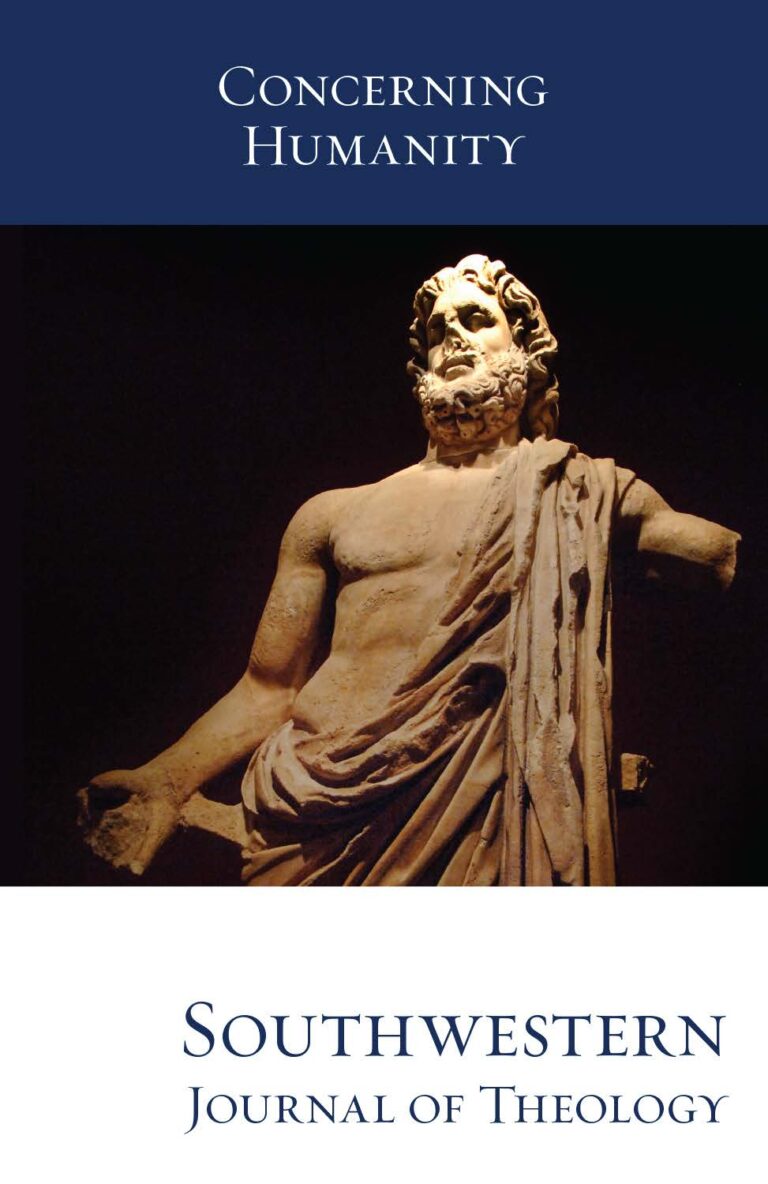
Concerning Humanity
Southwestern Journal of Theology
Volume 59, No. 1 – Fall 2016
Managing Editor: W. Madison Grace II
By Lewis Mudge. Grand Rapids: Eerdmans, 2014. 176 pages. Paperback, $18.00.
In Lewis Mudge’s book, We Can Make the World Economy a Sustainable Global Home, he argues that we need to reset our understanding of human spirit (Geist) after the wake of the Great Recession. Whereas modern culture has defined human spirit solely in terms of economic value, Mudge claims that we need to return to a political economy where everyone, including theologians, is involved in a public discussion on how the national and even world economy should be run (11–13). According to Mudge, humanity is homo oeconomicus, which means that human beings and their economic activities are primarily based in spiritual and familial relationships. Economics is not just mathematics but also cultural and humanistic. As a result, Mudge introduces his concept of covenantal humanism where followers of the Abrahamic faiths (Judaism, Christianity, and Islam) have a covenant with God to bring blessings to the earth and not a curse. Such faiths must covenant together to show the rest of the world the way forward (13–17).
Connected to this concept is the notion of stakeholdership where all humans have a stake in and right to the earth’s resources and how they are used. Mudge argues that the global economy should look at all people as stakeholders in all international business. He believes such a view would change the way that business operates and would ensure a more equal playing field among earth’s household of people as well as protecting earth’s finite resources (17–19). He rejects what he calls the Western mindset of neoliberalism where society is reduced to rational market forces that can be plotted mathematically and interference in business is not tolerated or questioned. He considers such a model imperial (50–56).
Instead, we need a worldwide stakeholdership where people manage their resources with the global community in mind (common global good) and not for their own self-interests. We are all part of the global oikos(household), so we should treat the world as a global household. Instead of representing only ourselves, we represent the earth and all who live on it (77–81). Mudge claims that this is not a political system per se but a general attitude built into the economic system with minimum standards to uphold these attitudes (83). Such attitudes can be carried by national and international legislation as well as faith communities who are the drivers for such change (89). In this way, we can build a better global economy that ensures equality and justice for all mankind.
Unfortunately, Mudge’s claims are simplistic, misguided, and inconsistent. Much of what he states concerning economic matters is lacking in careful attention to detail. His understanding of the causes of the Great Recession is very surface level, which is probably due to his death in 2009. While he accurately notes the banking scandal that led to the economic downfall, he is ignorant of the political issues that undergirded that scandal. Mudge’s attention to detail is also lacking in his understanding of economic principles, particularly when it comes to free market economics. He consistently utilizes a caricature that most proponents of the free market system would reject. He always equates self-interest and rational choice with maximization of profit and a lack of ethical awareness, which is simply not true. He also rejects rational market forces as a means to correct ethical misconduct and establish a just system even though such forces have inspired him to seek for economic reforms. Such a lack of understanding serves to undermine Mudge’s claims.
A surprising lack of theology is noticeable in Mudge’s work though he himself is a theologian. He touches on theological and scriptural issues briefly. The majority of his book is spent pontificating on economic and political issues. Even in the places where he deals with theology, he falls far short. He takes Scripture out of its context and uses it to make analogies to contemporary issues. He even states that justification by grace is just being sincere in one’s beliefs (20–21). Though certain vices are mentioned as causes to economic distress and humanity’s capacity for evil is acknowledged, Mudge never discusses the effects of sin on economics and the need for divine salvation in order to restore the global economy. He is content to let the rational and legislative powers of man solve the problem. This move is all the more bewildering since he is highly critical of Enlightenment rationalism and the reduction of humanity or rational considerations. What he denies with his right hand, Mudge reasserts with his left.
Mudge’s work also lacks the necessary detail to demonstrate how such a system would work. Who will ensure that everyone’s rights are maintained? Who will regulate the world economy? Who owns what? Who decides how resources and businesses are used? How will all of this be paid for? Mudge is content to only provide broad and unspecific suggestions. His writings seem to indicate two broad possibilities: 1) either the world will be controlled by an international organization that has the power to enforce regulations and protect individual rights for the common good or 2) all people will ultimately consent to Mudge’s thesis and live in a perfect utopia where no one has an absolute right to their own property and everyone seeks his neighbor’s good. The latter view is hopelessly naïve.
In the end, Mudge’s thesis is untenable. While I appreciate his criticism of the maximization-of-profit-at-all-cost mentality, his replacement is neither well thought out or even original in thought. It is simply socialism warmed over.





